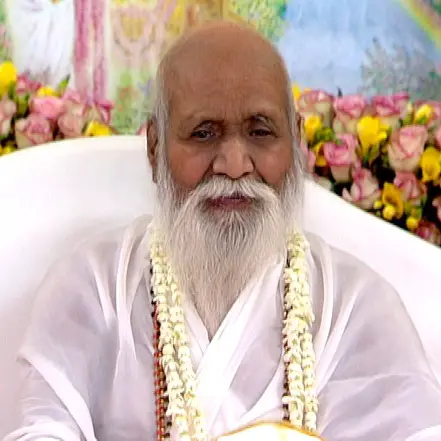Are you struggling with anxiety? Do you find yourself overwhelmed with worry and stress? If so, you are not alone. Millions of people around the world suffer from anxiety, and it can be a debilitating condition that affects your daily life. While there are many treatments available for anxiety, one technique that has proven to be effective is using mantras.
In this article, we will explore what mantras are, how they can help with anxiety, and provide you with some specific mantras to try.

Table of Contents
What Are Mantras?
Mantras are words or phrases that are repeated to help focus the mind and promote a sense of calm and relaxation. They have been used for thousands of years in various spiritual and religious practices, but they are also used in modern meditation and mindfulness practices. Mantras are typically short and easy to remember, making them an ideal tool for calming the mind.
How Can Mantras Help with Anxiety?
Anxiety is often caused by a racing mind that is overwhelmed with worry and fear. Mantras can help to interrupt this cycle of negative thinking by providing a positive focus for the mind. When you repeat a mantra, you are giving your mind something to focus on, which can help to quiet the anxious thoughts that are causing you to feel stressed and overwhelmed.
In addition, mantras can help to promote a sense of self-compassion and self-care. When you repeat a positive affirmation to yourself, you are reminding yourself that you are worthy of love and care, which can be a powerful antidote to the negative self-talk that often accompanies anxiety.
Specific Mantras for Anxiety
Ancient Mantras
- Om Mani Padme Hum: This Tibetan Buddhist mantra, meaning “the jewel is in the lotus,” is a call for wisdom and compassion. It’s believed to purify the mind, ease suffering, and bring forth inner peace. Each syllable in this mantra is said to correspond with different aspects of enlightenment and helps in releasing the tension accumulated from anxiety.
- Om Shanti Shanti Shanti: A Sanskrit invocation for peace, this mantra is often recited to calm the mind and bring about an atmosphere of tranquility. “Shanti” repeated thrice represents peace in body, speech, and mind. It’s particularly effective in moments of stress, helping to anchor the mind in a state of profound calmness.
- So Hum: Translated as “I am that,” this mantra is a reflection on one’s unity with the universe. It’s a reminder that we are connected to everything around us, fostering a sense of peace and belonging that can alleviate feelings of anxiety and isolation.
- Gayatri Mantra: One of the oldest and most powerful mantras from the Vedas, it is recited for enlightenment and guidance. The mantra, “Om Bhur Bhuvah Swah, Tat Savitur Varenyam, Bhargo Devasya Dhimahi, Dhiyo Yo Nah Prachodayat,” invokes the divine light of wisdom to illuminate our minds, aiding in the dissipation of anxiety and bringing clarity.
- Mahamrityunjaya Mantra: Another profound Vedic mantra, “Om Tryambakam Yajamahe, Sugandhim Pushtivardhanam, Urvarukamiva Bandhanan, Mrityor Mukshiya Maamritat,” is chanted for health, longevity, and protection from fears, particularly the fear of death, thus soothing anxiety and bringing inner peace.
- Sri Rudram: A powerful invocation of Lord Shiva, part of the Yajurveda, it is chanted for cleansing of sins, healing, and tranquility. The mantra seeks the benevolent aspects of Shiva’s energy to shield and heal the chanter, aiding in overcoming anxiety and stress.
Modern
- “I am calm, I am light”: This simple yet profound affirmation serves as a modern mantra for those seeking solace from anxiety. It’s a declaration of one’s intention to embody calmness and lightness, counteracting the heaviness that anxiety brings. Repeating this mantra can help shift focus from anxious thoughts to a more positive, peaceful state of mind.
- “This too shall pass”: Although not a traditional mantra, this phrase has gained popularity for its comforting reminder of the transient nature of our experiences, including anxiety. It encourages resilience and the perspective that current struggles are temporary, fostering a sense of hope and the strength to endure challenging moments.
- “Peace begins with me”: A mantra for self-compassion and inner peace, it emphasizes the idea that peace is a personal journey that starts within oneself. By affirming this belief, individuals can cultivate a peaceful mind, which in turn, radiates outward, influencing their environment and interactions.
- “I am safe and secure in this moment.” This mantra can help you feel more grounded and present, reducing feelings of anxiety or panic about the future.
- “I release what no longer serves me.” This mantra can help you let go of negative thoughts or emotions that may be contributing to your anxiety.
- “I am capable of handling whatever comes my way.” This mantra can help boost your confidence and resilience, making it easier to cope with stressful situations.
- “I am surrounded by love and support.” This mantra can help you feel less alone and more connected to the people and resources that can help you manage your anxiety.
- “I am in control of my thoughts and emotions.” This mantra can help you feel empowered and in control, reducing feelings of helplessness or overwhelm.
- “All is well in my world”: This affirmation by Louise Hay encourages individuals to trust the process of life and believe in the positive outcome of their situations. It’s particularly helpful in calming anxiety by reinforcing a sense of safety and well-being.
- “I choose peace over anxiety”: A simple yet powerful affirmation that empowers the individual to consciously choose their emotional state. It helps in moment-to-moment decisions to lean towards peace rather than succumb to the spirals of anxious thoughts.
- “Breathe in calm, breathe out tension”: This mantra is a reminder to use the breath as a tool for managing anxiety. It focuses on the intentional breathing in of calming energy and the release of tension with each exhale, promoting a physical and mental release of anxiety.
These mantras can be repeated silently to yourself whenever you are feeling anxious or overwhelmed. It can be helpful to choose one mantra that resonates with you and repeat it several times throughout the day. You can also write your mantra down and place it somewhere where you will see it often, such as on your computer monitor or on a sticky note on your bathroom mirror.
Benefits of Using Mantras for Anxiety
Some of the benefits of using mantras for anxiety include:
- Providing a sense of calm and relaxation
- Reducing negative self-talk and limiting beliefs
- Boosting confidence and self-esteem
- Promoting a more positive outlook on life
- Improving overall emotional well-being
Remember that the key to using mantras effectively is to choose a phrase that resonates with you personally and to practice repeating it regularly. Over time, you can develop a stronger connection to the mantra and the positive feelings it represents, helping you manage your anxiety in a more healthy and sustainable way.
How long does it take to see results from using mantras for anxiety?
The length of time it takes to see results from using mantras for anxiety can vary depending on the individual. It may take some time and practice to find the right mantra for you, but with persistence and patience, you can learn to manage your anxiety in a healthy and effective way.
Other Techniques for Managing Anxiety
While mantras can be a helpful tool for managing anxiety, they are not the only technique available. Here are a few other strategies that you may find helpful:
Mindfulness Meditation
Mindfulness meditation is a practice that involves focusing your attention on the present moment without judgment. It can help to reduce stress and anxiety by promoting a sense of calm and relaxation. There are many apps and guided meditations available to help you get started with mindfulness meditation.
Exercise
Regular exercise has been shown to be an effective way to reduce anxiety. Exercise can help to release tension in the body and promote the release of endorphins, which are natural mood-boosters. Try to get at least 30 minutes of exercise per day, such as a brisk walk or yoga class.
Deep Breathing
Deep breathing is a simple technique that can be done anywhere, at any time. It involves taking slow, deep breaths and focusing your attention on your breath. This can help to slow down your heart rate and promote a sense of calm and relaxation.
Mantras for Anxiety Frequently Asked Questions
Can mantras be used in combination with other anxiety management techniques?
Yes, mantras can be used in combination with other anxiety management techniques, such as deep breathing, mindfulness meditation, or exercise. In fact, combining multiple techniques can often be more effective than using just one.
Is there a “right” way to use mantras for anxiety, or can I adapt the technique to fit my own preferences?
There is no one “right” way to use mantras for anxiety, as the technique can be adapted to fit your individual preferences and needs. Some people prefer to repeat their mantra silently to themselves, while others may prefer to say it out loud or write it down. The most important thing is to choose a phrase that resonates with you and practice repeating it regularly.
Can anyone use mantras for anxiety, or is it only for certain types of people?
Mantras can be helpful for anyone experiencing anxiety, regardless of age, gender, or other demographic factors. However, it is important to work with a mental health professional to determine the most appropriate treatment plan for your individual needs.
Related Posts

Mantras for Anxiety

Best Mantras for Exams

Transcendental Meditation Mantras

